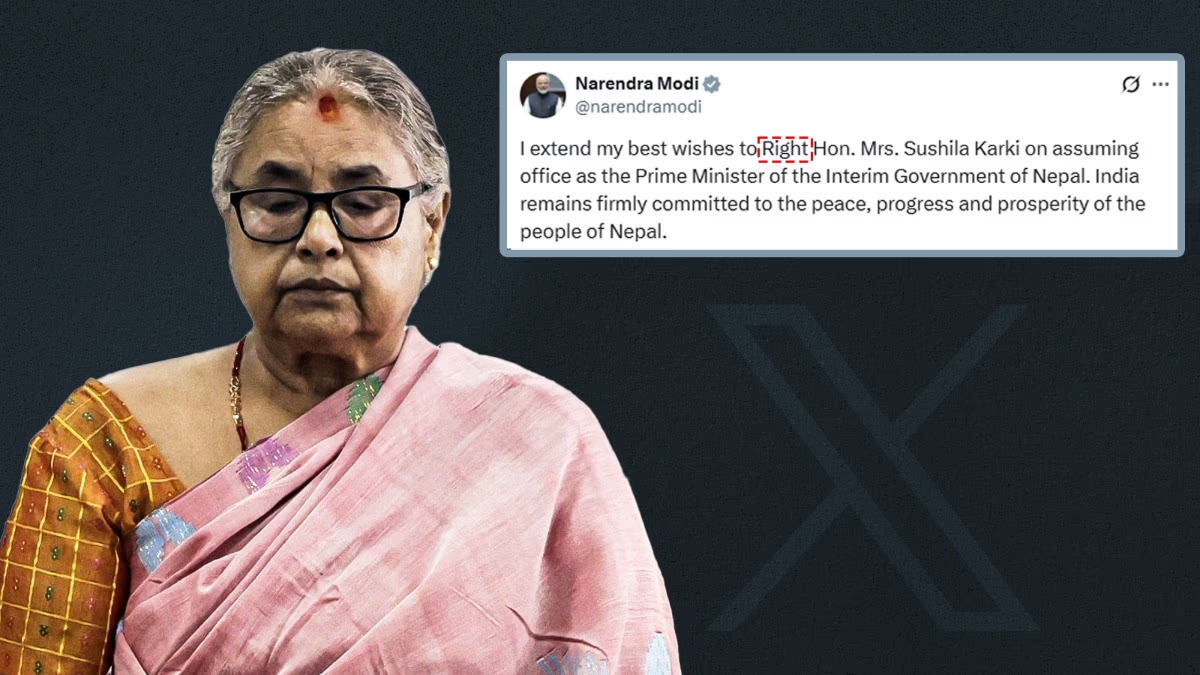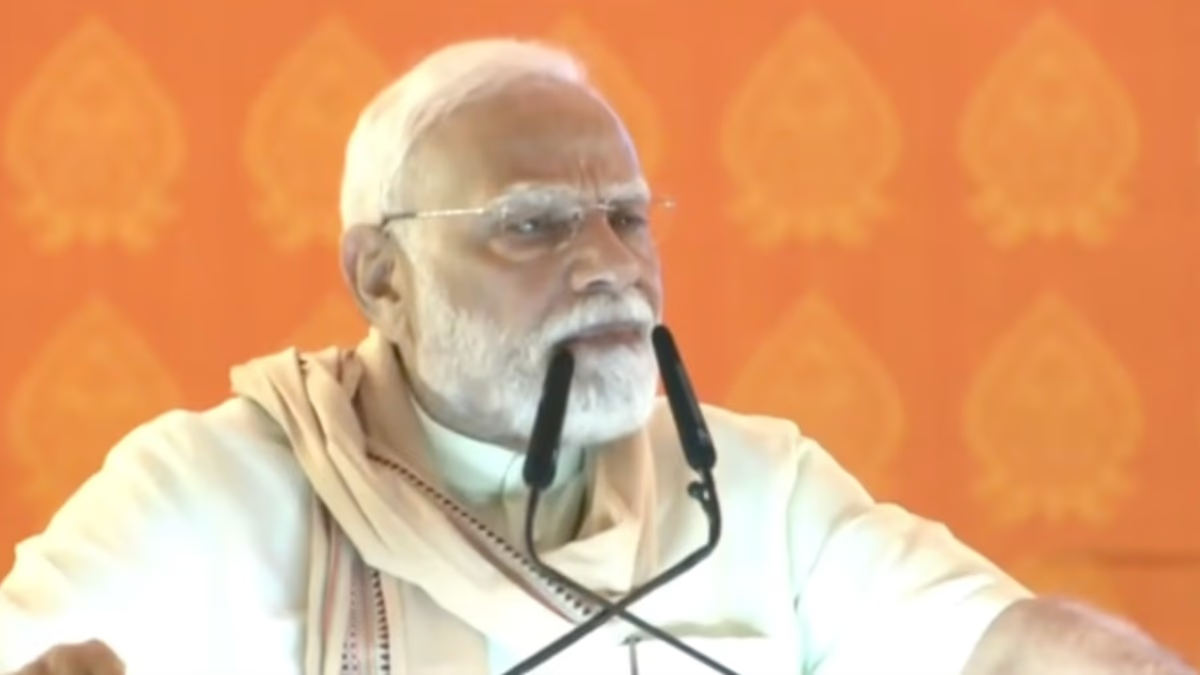Sushila Karki has made history as the first female Prime Minister of Nepal. Chosen by Gen-Z amidst a revolutionary movement, Sushila Karki has taken the helm in challenging times. On September 12, 2025, President Ramchandra Paudel formally swore her in. Sushila Karki, Nepal's former Chief Justice, is receiving accolades from around the globe.
India's Prime Minister Narendra Modi extended his warm wishes, writing in English:
"I extend my best wishes to Right Hon. Mrs. Sushila Karki...
Modi further affirmed India's steadfast commitment to Nepal's peace, prosperity, and development.
The question arises, why did PM Modi prefix Sushila Karki's name with
RIGHT
? Here, 'Hon.' is a shortened form for the English word 'Honourable', meaning 'esteemed'. But the term RIGHT seems initially perplexing.
Not just PM Modi, but leaders across the world extended their felicitations using the RIGHT title for Sushila Karki.
Pakistan's Prime Minister Shehbaz Sharif also extended his sincere wishes, writing:
"My sincere felicitations to Right Honourable Mrs. Sushila Karki...
Following this, Shehbaz Sharif committed to furthering Nepal-Pakistan relations.
The U.S. embassy in Nepal also congratulated Prime Minister Sushila Karki, prefixing her name with Right, and expressed joy over the return of democracy in Nepal.
Bangladesh's interim government chief, Mohammad Yunus, similarly addressed Sushila Karki with the Right title.
Why Use the Word RIGHT?
'Right Honourable' or its abbreviated forms 'Rt. Hon.' or sometimes just 'Right' is a formal honorary style. It is a legacy from British imperial traditions, notably prevalent in former British colonies and Commonwealth nations for conferring respect to high-ranking officials. This title is also applicable to Nepal's Prime Minister, albeit not exclusive to this country, extending to various other national leaders and senior officers. Adoption in Nepal is attributed to British influence, notwithstanding that Nepal has never been a British colony. Nonetheless, British protocol was embraced during colonial times when addressing Nepalese rulers.
Beyond the Prime Minister, this title is also used for Nepal's President, Vice-President, Speaker of the House, and Chief Justice.
The official website of Nepal’s President Office designates former Prime Ministers like Sher Bahadur Deuba and K.P. Sharma Oli as "Right Honourable Prime Minister".
In Nepali, the Prime Minister is called "सम्माननीय", translating to "Right Honourable" in English. Ministers and Members of Parliament are referred to as merely "Honourable".
The Tradition of 'Right' in Commonwealth Countries
This title is predominantly used in Commonwealth countries where British constitutional traditions linger. In nations such as the UK, Canada, Australia, New Zealand, and Kenya, the term Right precedes titles for Prime Ministers, Governors General, and Chief Justices. The British government's website lists Prime Minister names with The Right Honourable prefix, such as Sir Keir Starmer, Prime Minister.
In March 2025, Mark Carney was elected as Canada's 24th Prime Minister. The official government website (pm.gc.ca) continually addresses him as "The Right Honourable Mark Carney".
During the 2025 Australia-New Zealand Leaders Meeting, the Australian Prime Minister's official website (pm.gov.au) addressed New Zealand's PM Christopher Luxon as "The Right Honourable Christopher Luxon".
The Origin of the Tradition
The roots of "Right Honourable" trace back to the mid-14th century medieval England, a time when honorific terms emerged to depict social status.
In the 15th century, the official documents utilized "Right honorabull" for lords and high officials. It extended the term "Honourable", initially for members of parliament or knights.
In 1614, John Selden's book Titles of Honour employed "Honourable" for peers' children. Subsequently, adding "Right" elevated the distinction. It linked to the Privy Council, the monarch's confidential advisory council. Members henceforth were termed "Right Honourable", since "Right" implied "full" or "high".
The Meaning of "Right"
In Old English, "Right" signified "very", "fully", or "proper", enhancing the intensity of "Honourable". It ranks below "Most Honourable". For instance, "Right Reverend" used for bishops conveys "very honorable".
This title retains British tradition's remnants, upholding decorum and hierarchy. Its usage in international diplomacy reveals how titles are utilized among Commonwealth nations, parents using this esteemed form to address each other’s leaders.




